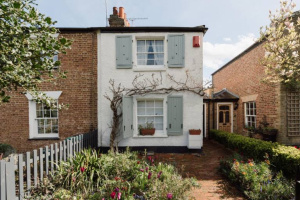Upfront costs of renting SOS
 When you’re renting for the first time, there’s a lot of information people expect you to know. There are costs, contracts and rules – and you’re not sure what’s a legal requirement, which charges vary from landlord to landlord or how well-protected you are as a renter.
When you’re renting for the first time, there’s a lot of information people expect you to know. There are costs, contracts and rules – and you’re not sure what’s a legal requirement, which charges vary from landlord to landlord or how well-protected you are as a renter.
Moving house is difficult enough without having any added stress so we want to lend a helping hand by looking at what charges you can expect. This way, you can pack up, move in and settle in, with minimal hassle!
The main and biggest upfront cost will be a month’s rent in advance and a deposit (this will usually be 6 weeks rent). If you’re in an ‘Assured Short hold Tenancy’ your landlord has a legal obligation to put your deposit in a protected deposit scheme. If they have not done so within 30 days of you moving in, it’s worth contacting ‘The Property Ombudsman’ to find out what next steps you should take.
When you have secured the rental property, the Letting Agent may ask you for a holding fee. This will be an upfront portion of the rest of your move-in costs – not an extra fee – but if you decide to drop out of renting the property before you’ve moved in, you won’t get this back.
You may also be charged Letting Agency fees. It’s always worth finding out the breakdown of what these include and questioning any fees you don’t understand. These charges usually include fees for:
- Reference checks: this could be a form they send to your previous landlord (in which they clarify that you paid rent on time etc) and your employer (to clarify you have a steady income).
- Credit checks: this will be a look into your past financial behaviour.
- Drawing up contracts.
- Professional clean: this is usually charged to you at the start of your tenancy or you’re expected to do it on checking out. Read your contract for more info.
These are the main fees you can be expected to be charged, but other things could affect this e.g. if you have a pet or if there is more than one person moving in per room, you may incur additional charges.
The process from viewing to renting a property can be pretty quick. To ensure the process moves along smoothly, it’s worth having some documents ready e.g. proof of address, proof of work, colleagues who can work as a reference and maybe bank statements.
Be in the know when you start home hunting and know where you stand. The quicker you get past the fees and packing, the closer you’ll be to your new happy home!


